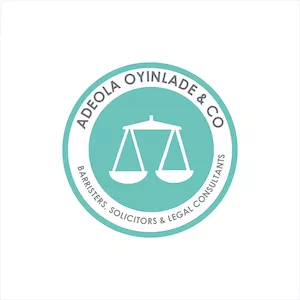Meaning and Nature of Banking License
A banking license is an official document or permit issued by the Central Bank of Nigeria (CBN) that grants legal permission for a financial institution to conduct banking business in Nigeria.
The banking license specifies the scope and activities the bank is authorised to undertake, such as taking deposits, providing loans, foreign exchange services, wealth management, etc. The license categorizes banks as commercial, specialized, or merchant banks.
The banking license is considered an intangible asset for the bank, as it grants protective legal rights and the ability to operate in a regulated financial sector. The value of the license depends on factors like the bank's business model and market position
Legal Framework Governing Banking License
- The Central Bank of Nigeria Act 2007: It established the Central Bank of Nigeria as the regulating body responsible for providing banking licences in Nigeria.
- he Banks and Other Financial Institutions Act ("BOFIA") requires all banks in Nigeria to have a valid license to do banking operations.
- The Central Bank of Nigeria's ("CBN") Regulations on Scope of Banking Activities and Ancillary Matters, No. 3, 2010: It enhanced the scope and framework for banking business in Nigeria.
- Companies and Allied Matters Act ("CAMA"): Banks in Nigeria must comply with the Companies and Allied Matters Act ("CAMA") and be incorporated as companies.
Types of Banking License
There are three main types of banking licenses issued by the Central Bank of Nigeria (CBN) under the Banks and Other Financial Institutions Act (BOFIA) 2020: These include:
- Commercial Banking License
- Merchant Banking License
- Specialised Banking License
Commercial Banking License
The Central Bank of Nigeria (CBN) issues commercial banking licenses for national, regional, and international operations. The minimum paid-up capital requirements are ₦25 billion for a national license, ₦10 billion for a regional license, and ₦50 billion for an international license.
This license allows the bank to undertake a wide range of activities including:
- Taking deposits and maintaining accounts
- Providing retail banking services like mortgages
- Extending financial and credit facilities
- Dealing in foreign exchange and providing related services
- Acting as a settlement bank
- Providing treasury management and custodial services
- Offering financial advisory services
- Investing in debt instruments and derivatives
- Undertaking fixed income trading as a Primary Dealer Market Maker
Requirements for Granting a Commercial Banking License:
- The promoters will submit a formal application to the Director of Banking Supervision at CBN.
- Pay the non-refundable application fee of ₦500,000.
- Deposit the requisite paid-up capital (₦25 billion for new licenses) with the CBN.
- Submit a feasibility report/business plan that includes information on ownership, management, operations, and finances.
- Provide information about the bank's corporate structure, branch expansion plans, IT systems, and employee training.
- Submit the bank's Memorandum and Articles of Association.
- Conduct regulatory evaluations on the fitness and propriety of promoters and management.
The CBN assesses the application and issues an approval-in-principle. The applicant has 6 months to submit further documents and pay a non-refundable licensing cost of ₦5 million to receive the final banking license.
Merchant Banking License:
Merchant banking licenses are subject to the Merchant Banks Regulations 2010 issued by the Central Bank of Nigeria (CBN). It enables the bank to offer specialized services such as wholesale banking, investment banking, and advisory services.
Merchant banks provide commercial loans, investments, and advice services to major businesses and high-net-worth individuals, not the general public. sA merchant banking license requires an initial paid-up share capital of ₦15 billion, or any other amount stipulated by the Central Bank of Nigeria.
Requirements for granting a merchant banking license:
- Make a formal application to the Governor of the CBN.
- Pay the required non-refundable license cost.
- Deposit a minimum of ₦15 billion in paid-up capital with CBN.
- Submit a feasibility report/business plan addressing the bank's projected activities, management, and projected revenues.
- Provide information about the bank's organizational structure, branch network, IT systems, and staff training. Also, include the Memorandum and Articles of Association.
- Get regulatory reviews on the fitness and propriety of the bank's promoters and management team.
The CBN evaluates the application and, if all requirements are met, awards the merchant banking license. The license permits the bank to do operations outlined in Part 2 of the Merchant Banks Regulations, 2010, such as:
- Taking deposits from corporate clients above ₦100 million
- Providing finance and credit facilities to non-retail customers
- Dealing in foreign exchange and providing related services
- Acting as an issuing house and underwriting securities
- Providing debt factoring, treasury management, and custodial services
- Engaging in fixed income trading and proprietary investments
The merchant banking license in Nigeria enables specialised financial institutions to offer wholesale, investment, and advisory services to large corporate clients and high net-worth individuals under the regulatory oversight of the Central Bank.
Specialised Banking License
The Central Bank of Nigeria (CBN) issues specialized banking licenses to non-interest banks, microfinance banks, development banks, mortgage banks, and other authorized institutions.
Minimum paid-up capital requirements:
- Non-interest bank (regional): ₦ 5 billion
- Non-interest bank (national): ₦ 10 billion.
- Primary Mortgage Institution: ₦5 Billion.
The license allows the bank to undertake specialized banking activities as prescribed by the CBN.
Requirements for Granting Specialized Banking License
- Make a formal application to the Director of Banking Supervision at the CBN.
- Pay a non-refundable ₦500,000 application fee.
- Deposit the minimum paid-up capital with the CBN (₦5-10 billion depending on the type).
- Submit a feasibility report/business plan that discusses ownership, management, operations, finances, and so on.
- Provide information about the bank's corporate structure, branch expansion plans, IT systems, and staff training.
- Attach the bank's Memorandum and Articles of Association.
- Undergo regulatory reviews to determine the fitness and propriety of promoters and management.
After reviewing the application, the CBN gives an Approval-in-Principle. The applicant has 6 months to submit further documentation, including a non-refundable licensing cost of ₦5 million, to get the final specialized banking license.
Conclusion
For banks to function legally in Nigeria, they must have a valid license issued by the CBN in accordance with the Banks and Other Financial Institutions Act (BOFIA). Obtaining a banking license in Nigeria requires meeting minimum capital requirements (₦10-50 billion), submitting detailed business plans, and passing regulatory reviews on the bank's ownership, management, and operational capabilities.
The banking license subjects the bank to ongoing supervision and regulation by the CBN to ensure compliance with banking laws and protect customer interests. The license can be revoked if the bank fails to meet regulatory standards.
The content of this article is intended to provide a general guide to the subject matter. Specialist advice should be sought about your specific circumstances.


